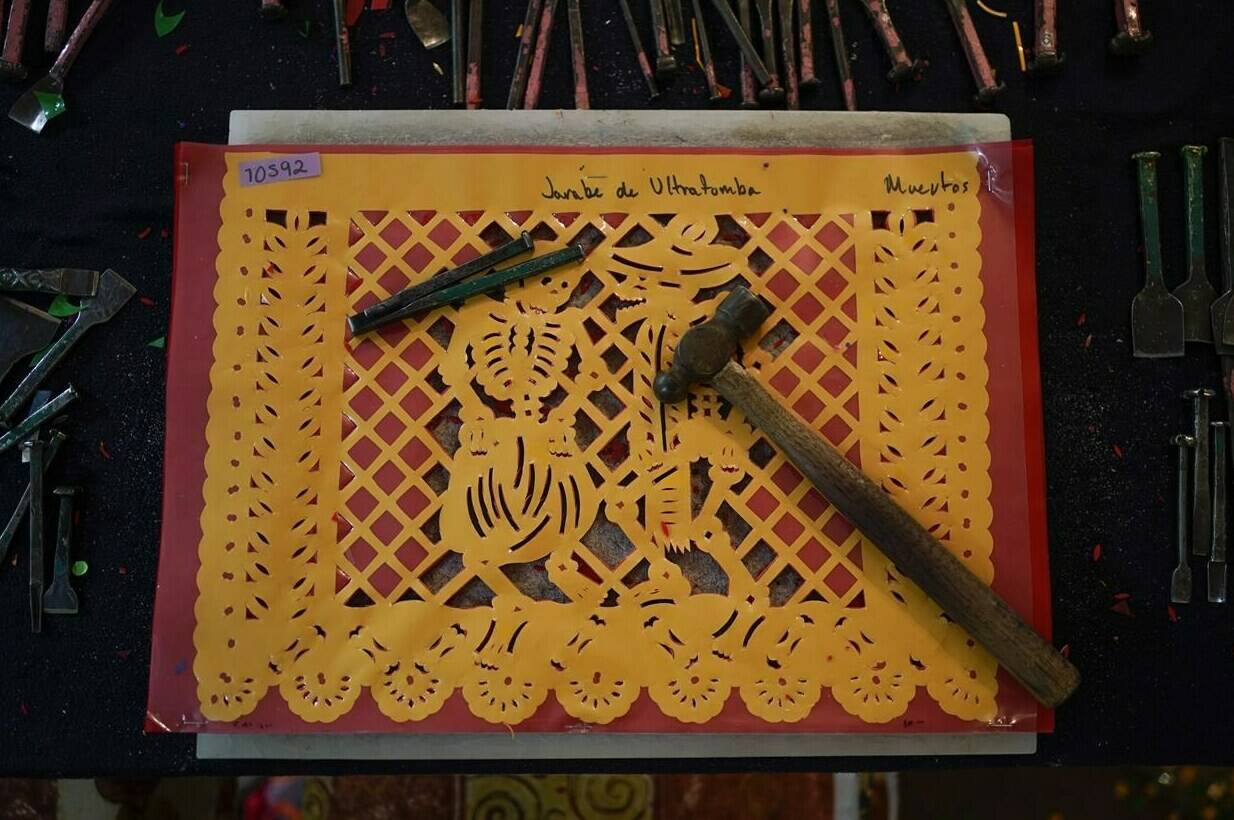During the Day of the Dead celebrations that take place in late October and early November in Mexico, the living remember and honor their dearly departed, but with celebration — not sorrow.
Marigolds decorate the streets as music blares from speakers. Adults and children alike dress as skeletons and take photos, capturing the annual joy-filled festivities. It is believed that during the Day of the Dead — or Dia de Muertos — they are able to commune with their deceased loved ones.
No one knows when the first observance took place, but it is rooted in agriculture-related beliefs from Mexico’s pre-Hispanic era, said Andrés Medina, a researcher at the Anthropological Research Institute of the National Autonomous University of Mexico. Catholic traditions were incorporated into the celebration after the Spanish conquest in 1521.
“In that mythology, the corn is buried when it’s planted and leads an underground life for a period to later reappear as a plant,” Medina said. The grain of corn is seen as a seed, comparable to a bone, which is seen as the origin of life.
Today, skeletons are central to Day of the Dead celebrations, symbolizing a return of the bones to the living world. Like seeds planted under soil, the dead disappear temporarily only to return each year like the annual harvest.
Altars are core to the observance as well. Families place photographs of their ancestors on their home altars, which include decorations cut out of paper and candles. They also are adorned with offerings of items once beloved by those now gone. It could include cigars, a bottle of mezcal or a plate of mole, tortillas and chocolates.
Traditional altars can be adorned in a pattern representative of a Mesoamerican view that the world had levels, Medina said. But not everyone follows — or knows — this method.
“To the extent that Indigenous languages have been lost, the meaning (of the altar) has been lost as well, so people do it intuitively,” he said. “Where the Indigenous languages have been maintained, the tradition is still alive.”
The way Mexicans celebrate the Day of the Dead continues to evolve.
Typically, it is an intimate family tradition observed with home altars and visits to local cemeteries to decorate graves with flowers and sugar skulls. They bring their deceased loved ones’ favorite food and hire musicians to perform their favorite songs.
“Nowadays there’s an influence of American Halloween in the celebration,” Medina said. “These elements carry a new meaning in the context of the original meaning of the festival, which is to celebrate the dead. To celebrate life.”
In 2016, the government started a popular annual parade in Mexico City that concludes in a main square featuring altars built by artisans from across the country. The roughly three-hour-long affair features one of the holiday’s most iconic characters, Catrinas. The female skeleton is dressed in elegant clothes inspired by the engravings of José Guadalupe Posada, a Mexican artist who drew satirical cartoons at the beginning of the 20th century.
On Friday afternoon in the capital city, Paola Valencia, 30, walked through the main square looking at some of the altars and explained her appreciation for the holiday: “I love this tradition because it reminds me that they (the dead) are still among us.”
Originally from the Mexican state of Oaxaca, she said the residents of her hometown, Santa Cruz Xoxocotlán, take a lot of time to build large altars each year. They are a source of pride for the whole community.
“Sometimes I feel like crying. Our altars show who we are. We are very traditional and we love to feel that they (the dead) will be with us at least once a year,” she said.
—María Teresa Hernández, The Associated Press

